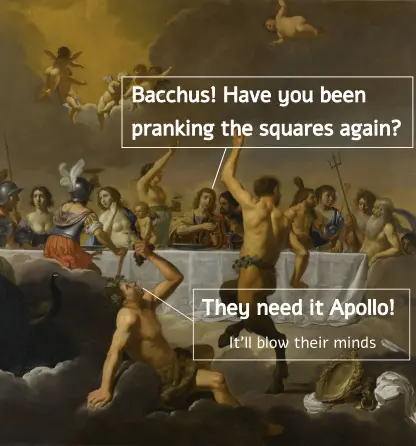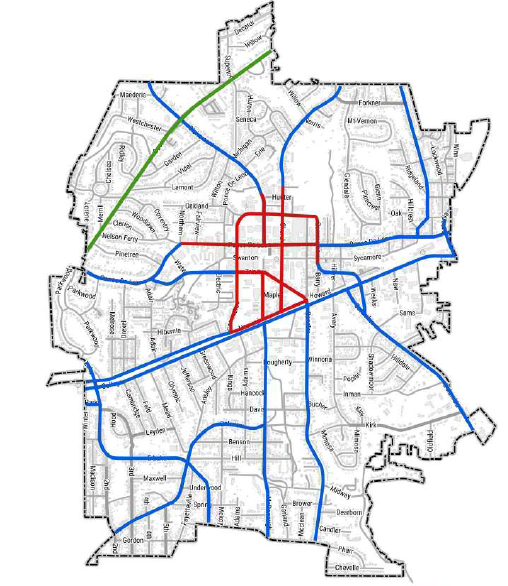
Rich folk are also good at gaming all the other criteria (varsity sports, extracurricular achievements). “opportunity hoarding” I think is the term that’s been used, or resume padding. It’s also about being able to pay full tuition.
This is a sentence. There are many like it, but this one is mine.

Rich folk are also good at gaming all the other criteria (varsity sports, extracurricular achievements). “opportunity hoarding” I think is the term that’s been used, or resume padding. It’s also about being able to pay full tuition.

It’s apparently based on this painting (with apollo at the table, and bachus in the foreground) https://musee-magnin.fr/en/node/19

But more importantly, even if it were based on the Last Supper, I don’t think this performance would necessarily be mocking Christianity.

Flesh-toned shirts always bother me
I think that violates the 8th amendment.
time and place man, time and place
live and let live






























Privacy Badger has recently started blocking Twitter embedding for me (in the past few days). Does anyone know specifically what Twitter is doing to prompt this? For instance, see this thread on the Ukraine war on Daily Kos, which includes a lot of embedded Twitter posts https://www.dailykos.com/stories/2023/11/9/2204752/-Ukraine-Invasion-Day-625-RU-may-experience-redeployment-issues


Thank you planters for protecting us from reckless drivers!

Food for thought @michael@yall.theatl.social
I found this comment on blocklist systems to be interesting: https://social.treehouse.systems/@adrienne/111043288202527510
How do we unblock any instance that got on Oliphant tier 0 but are later removed? Is that something that will be checked for?
Another thought – how does blocking and silencing affect the new search system? I guess blocking is obvious…but does silence block search? If so, I think that makes silencing much more impactful and we’d need to be more careful with it.
I suspect the ‘affirmative action’ trend also reflects the difference in ambition/drive between the low-income high achievers and the >70% high achievers. The low income group is smaller than the >70% group (look at the size of the ‘above average odds’ regios and the ‘below average odds’ regions). This is because most of the people in the low income group will never even apply for a private college – only the strongest applicants apply. But from the >70% group, basically every kid applies to college, and they are much more comfortable applying for ‘reach’ colleges (even if it costs their parents a few hundred extra dollars). They’ve also gamed their test scores.